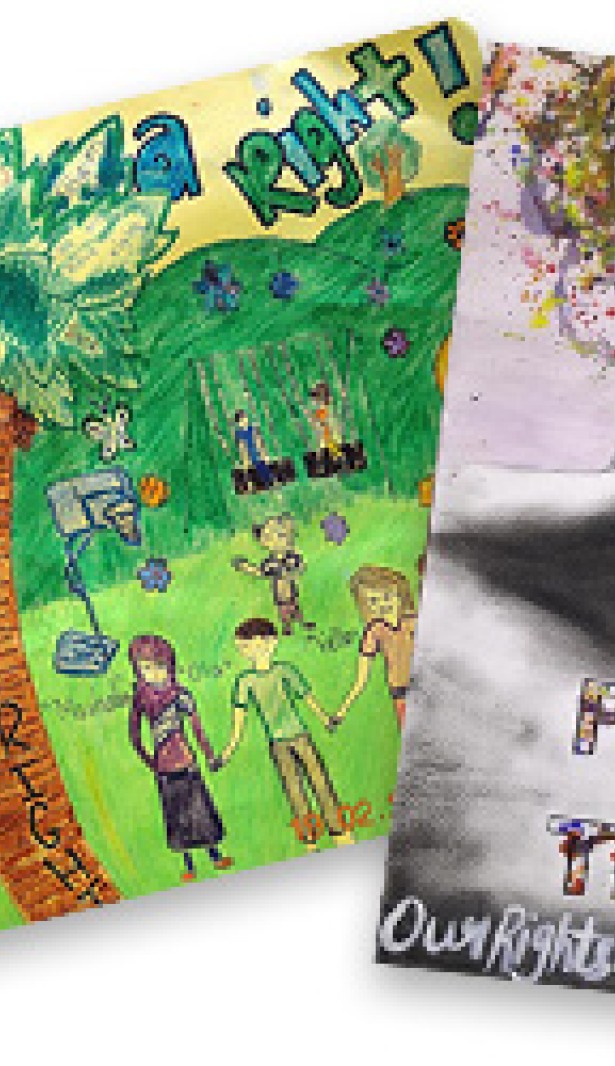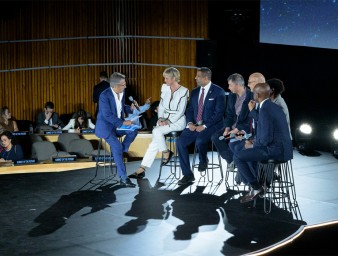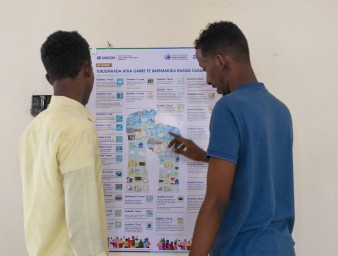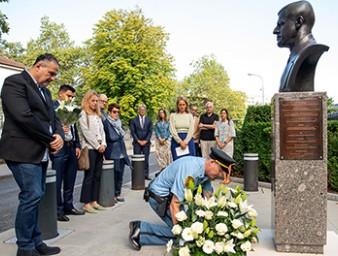Children draw rights and freedoms
11 March 2016
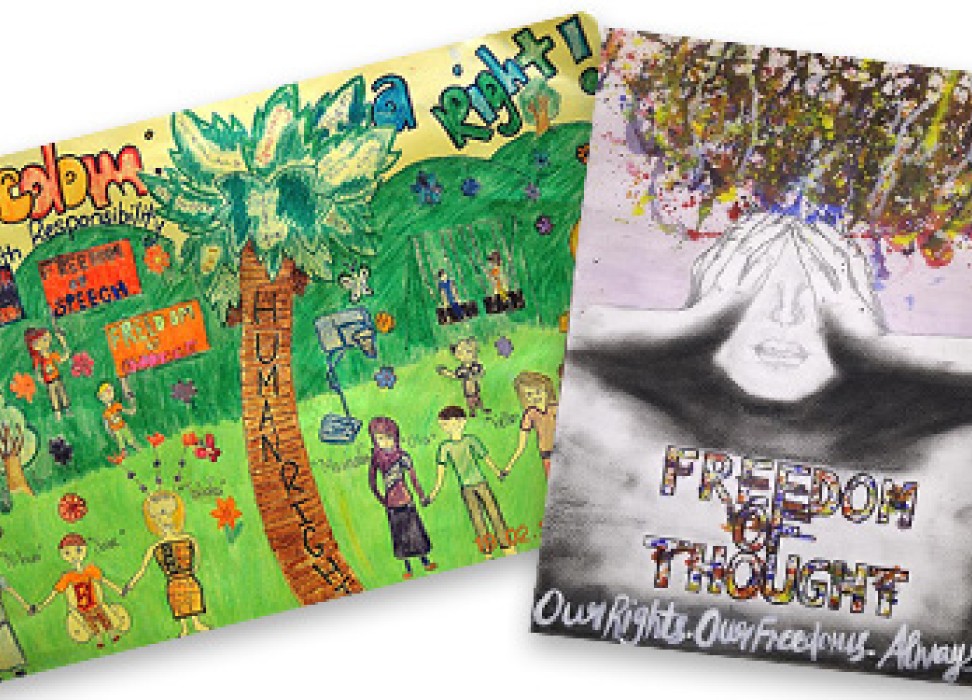
Two young people, from Samoa and Pakistan have been named the global winners of the UN Human Rights Office Freedom Poster contest.
Alexandria Slaven, 11 from Samoa won the 5 to 11 age group and Eiza Abid, 15, from Pakistan won the 12-18 age group. The competition was organized as part of the year-long campaign by the Office to mark the 50th anniversary of the two core human rights treaties – the International Covenant on Civil and Political Rights (ICCPR) and the International Covenant on Economic, Social and Cultural Rights (ICESCR). Children were asked to illustrate what freedom meant to them.
“My poster illustrates how freedom comes with responsibilities and children and adults should understand this,” said Slaven, whose poster depicts a coconut tree with people holding hands. “The growing coconut tree with various rights and freedoms written on it symbolizes the growth of a person.”
Abid’s picture used both dark tones and bright colours to represent freedom of thought.
“My painting personifies the darkness and confinement within a person’s life and once the person is set free from the pressures and judgements of others, one can freely express their thoughts and imagination in their true colours,” she said.
Having the poster to promote the anniversary designed by young people gives an great insight into how they see their rights, said Fabian Salvioli, Chair of the Human Rights Committee, which monitors how governments are implementing the ICCPR.
“For the Covenants to continue to have meaning over the next 50 years, children must be aware of their rights and the importance of the Covenants to their lives and happiness,” he said
Both designs will be made into posters for use during the global campaign. They were selected from the winners of local competitions organized by the UN. Seven countries joined the call for the competition -- Armenia, Burundi, Fiji, Madagascar, Pakistan, Samoa and Tunisia.
Waleed Sadi, chair of the Committee on Economic, Social and Cultural Rights, which monitors government implementation of the ICESCR, said he was impressed with the quality of the posters.
“The Covenants are more than legal treaties - they have meaning and significance for all peoples and day-to-day life. By turning rights into pictures, this would help us understand and appreciate even more the Covenants and their relevance to all. Our thanks and congratulations to everyone who took part,” he said.
All the winning entries can be viewed on the 50th anniversary website.
11 March 2016
